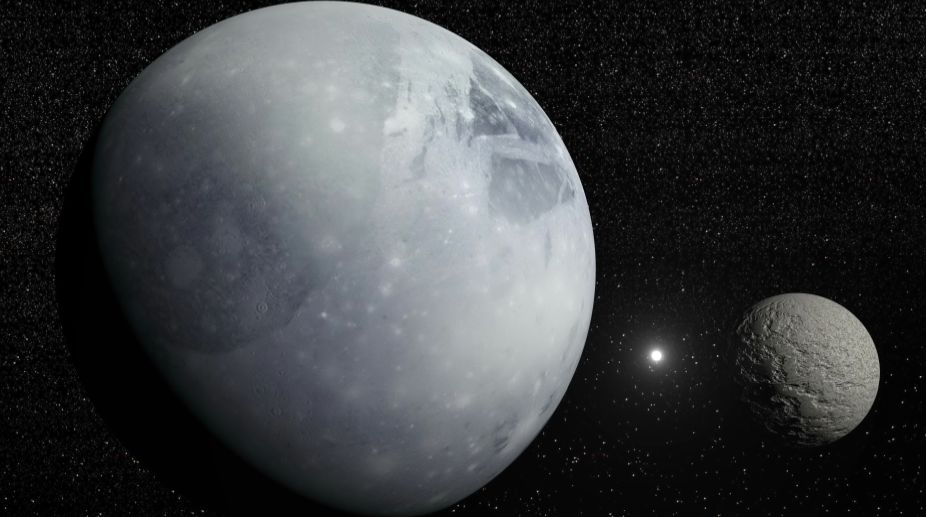Charon — Pluto's moon which is more than half its diameter and orbits only 12,000 or so miles away — is slowing down the decay of Pluto's atmosphere, scientists have found.
To put that into perspective, picture our moon three times closer to Earth and as large as Mars.
Advertisement
A new study from the Georgia Institute of Technology has provided additional insight into this relationship and how it affects the continuous stripping of Pluto's atmosphere by solar wind.
When Charon is positioned between the Sun and Pluto, the research indicates that the moon can significantly reduce atmospheric loss.
"Charon doesn't always have its own atmosphere. But when it does, it creates a shield for Pluto and redirects much of the solar wind around and away," said Carol Paty, associate professor in the school of earth and atmospheric sciences.
This barrier creates a more acute angle of Pluto's bow shock, slowing down the deterioration of the atmosphere.
When Charon doesn't have an atmosphere, or when it's behind or next to Pluto (a term scientists call "downstream"), then Charon has only a minor effect on the interaction of the solar wind with Pluto.
The study's predictions, performed before the New Horizons probe collected and returned data to Earth, is consistent with the measurements made by the spacecraft about Pluto's atmospheric loss rate.
The research was published in a special Pluto issue of the journal Icarus.











